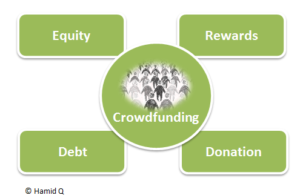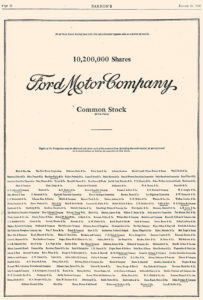The SEC issued a bulletin warning investors about SAFE securities used in equity crowdfunding offerings.
Issuers in equity crowdfunding campaigns have offered various types of securities since it became legal to do so, such as various classes of stock, notes and instruments known as SAFE instruments. ‘SAFE’ stands for ‘Simple Agreement for Future Equity.’
SAFEs were originally designed to be an alternative to convertible notes for early-stage technology investments. The idea was that they would become simple, standardized vehicles for investing in very young companies without dealing with a lot the terms needed to make a convertible note or stock investment.
As the SEC points out, a SAFE is not like investing in common stock. It is an agreement that converts into issuer securities in the event of future triggering events, such as a future investment round, an IPO, a change of control or a liquidation.
Some people seem to think of them like convertible notes. However, convertible notes have maturity dates, among other terms. SAFEs do not and may never convert. SAFEs are more like derivative contracts with springing conversion based on listed events.
SAFEs have been increasing in use in the venture capital and angel investing worlds, and more recently other investors have gained some exposure and comfort with them. However, the SEC wants investors to know that:
- SAFEs do not represent a current equity stake in the company in which you are investing.
- SAFEs may only convert to equity if certain triggering events occur.
- Depending on its terms, a SAFE may not be triggered.
To the people who have seen them before, none of this is a surprise. To a new investor, the SEC is concerned that these terms may be unexpected. As the SEC said:
SAFEs were developed in Silicon Valley as a way for venture capital investors to quickly invest in a hot startup without burdening the startup with the more labored negotiations an equity offering may entail. Oftentimes, for the venture capital investor, it was more important to get the investment opportunity, and possible future opportunities, with the startup than it was to protect the relatively small investment represented by the SAFE. In addition, the various mechanisms of the SAFE, from the triggering events to the conversion terms, were designed to best operate in the context of a fast growing startup likely to need and attract additional capital from sophisticated venture capital investors. This may or may not be the case with the crowdfunding investment opportunity you are exploring.
SAFEs can make a lot of sense to particular parties in particular deals, but investors such as crowdfunding investors should make sure to understand exactly what rights they have in what they are purchasing.









